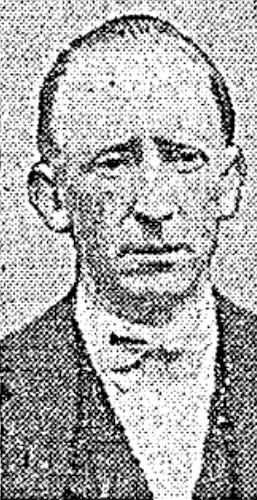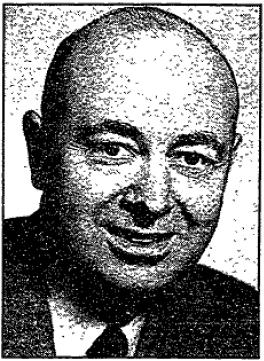Related Research Articles

Agitprop refers to an intentional, vigorous promulgation of ideas. The term originated in the Soviet Union where it referred to popular media, such as literature, plays, pamphlets, films, and other art forms, with an explicitly political message in favor of communism.
Sedition is overt conduct, such as speech or organization, that tends toward rebellion against the established order. Sedition often includes subversion of a constitution and incitement of discontent toward, or insurrection against, established authority. Sedition may include any commotion, though not aimed at direct and open violence against the laws. Seditious words in writing are seditious libel. A seditionist is one who engages in or promotes the interest of sedition.

The Communist Party of Canada is a federal political party in Canada. Founded in 1921 under conditions of illegality, it is the second oldest active political party in Canada, after the Liberal Party of Canada. Although it does not currently have any parliamentary representation, the party's candidates have previously been elected to the House of Commons, the Ontario legislature, the Manitoba legislature, and various municipal governments across the country.

Hugh Guthrie was a Canadian lawyer and politician who served as a minister in the governments of Sir Robert Borden, Arthur Meighen and R. B. Bennett.

Walter Andrew Brennan was an American actor and singer. He won the Academy Award for Best Supporting Actor for his performances in Come and Get It (1936), Kentucky (1938) and The Westerner (1940), making him one of only three male actors to win three Academy Awards, and the only male or female actor to win three awards in the supporting actor category. Brennan was also nominated for his performance in Sergeant York (1941). Other noteworthy performances were in To Have and Have Not (1944), My Darling Clementine (1946), Red River (1948) and Rio Bravo (1959). On television, he starred in the sitcom The Real McCoys (1957-1963).

Timothy Buck was the general secretary of the Communist Party of Canada from 1929 until 1962. Together with Ernst Thälmann of Germany, Maurice Thorez of France, Palmiro Togliatti of Italy, Earl Browder of the United States, and Harry Pollitt of Great Britain, Buck was one of the top leaders of the Joseph Stalin-era Communist International.

Thomas Francis O'Higgins was an Irish Fine Gael politician and medical practitioner who served as Minister for Defence from 1948 to 1951, Minister for Industry and Commerce from March 1951 to June 1951 and Leader of the Opposition from January 1944 to June 1944. He served as a Teachta Dála (TD) from 1929 to 1932 and 1937 to 1953.

Albert Edward Smith, known as A. E. Smith, was a Canadian religious leader and politician. A social gospeller, Smith was for many years a minister in the Canadian Methodist Church before starting his own "People's Church". He served in the Legislative Assembly of Manitoba from 1920 to 1922 as a Labour representative. In 1925, he became a member of the Communist Party of Canada.
Sam Carr was an organizer for the Communist Party of Canada and its successor, the Labor-Progressive Party, in the 1930s and 1940s. He was born Schmil Kogan in Tomashpil, Ukraine, in 1906 and immigrated to Canada in 1924, living in Winnipeg and Regina before settling in Montreal in 1925. Carr became an organizer for the Young Communist League with Fred Rose.

Stewart Smith was a long-time leading member of the Communist Party of Canada. He also served on Toronto City Council for a period in the 1930s and 1940s.
Stjepan Mesaros, best known as Steve Nelson, was a Croatian-born American political activist. Nelson achieved public notoriety as the political commissar of the Abraham Lincoln Brigade in the Spanish Civil War and as a leading functionary of the Communist Party, USA. Nelson is best remembered for having been prosecuted and convicted under the Smith Act in 1953.

Wolfgang Langhoff was a German theatre, film and television actor and theatre director.

The Meerut Conspiracy Case was a controversial court case that was initiated in British Raj in March 1929 and decided in 1933. Several trade unionists, including three Englishmen, were arrested for organizing an Indian railway strike. The British government convicted 27 leftist trade union leaders under a lawsuit. The trial immediately caught attention in England, where it inspired the 1932 play Meerut by a Manchester street theatre group, the Red Megaphones, highlighting the detrimental effects of colonisation and industrialisation.

The Standard Theatre is an inactive theatre in Toronto that originated as the city's main venue for Yiddish theatre, and later became the Victory Burlesque, which would be the last traditional burlesque theatre in Toronto when it closed in 1975. It is located at 285 Spadina Ave. the corner of Spadina Avenue and Dundas Street.
The Canadian Labour Defence League (CLDL) was a legal defence organization founded and led by A. E. Smith. The league was in 1925 as a civil rights organization dedicated to protecting striking workers from persecution. It was allied with the Communist Party of Canada and functioned as a front for the party. The group was the Canadian affiliate of International Red Aid.
The Left Column was an agitprop theater troupe during the 1920s and 1930s. The troupe worked in support of the Workers International Relief (WIR). During the Nazi era, some of the group went into exile in the Soviet Union, where some of the members were arrested by the Soviet secret police in the Great Purge and in connection with the Hitler Youth Conspiracy.

Helmut Damerius was a German communist, theatre director, writer and the founding member of the Left Column, an agitprop theater group. As the Nazi Party gained in strength, he went into exile in Moscow, only to be arrested in the so-called Hitler Youth Conspiracy and sentenced to a long term in a Soviet prison. After his prison sentence, he was banished to Kazakhstan and was not permitted to move elsewhere. In 1956, he received permission to move to East Germany, where he stayed until his death.

Anne Burlak Timpson was an early twentieth-century leader in labor organizing and leftist political movements. A member of the National Textile Workers Union and Communist Party, Burlak was jailed numerous times for sedition. Based in New England for much of her adult life, Burlak was a candidate for local and state offices in Rhode Island and played a major role in crafting the National Recovery Administration's workplace standards for textile unions during the New Deal era.

Germaine Berton was a French anarchist and trade unionist. She is known for the murder of Marius Plateau, an editor for the Action Française journal and a leader in the royalist organisation Camelots du Roi, in January 1923. Germaine Berton was defended by Henri Torrès during her trial and surrealists have used her mugshot in a number of art pieces. Despite confessing, Berton was acquitted on 24 December 1923.
The Stratford General Strike of 1933 was a strike by 650 furniture workers and 100 chicken-pluckers in Stratford, Ontario, Canada. The strikes were led by workers from recently unionized factories in the Stratford area with the purpose of securing higher wages. It also represented the final time the Canadian military was called to assist in quelling a strike.
References
- ↑ The Worker vol.11 Number 523, December 17, 1932, see image
- 1 2 3 Khouri 2007, p. 70.
- ↑ Berton 1990, p. 213.
- ↑ Berton 1990, p. 214.